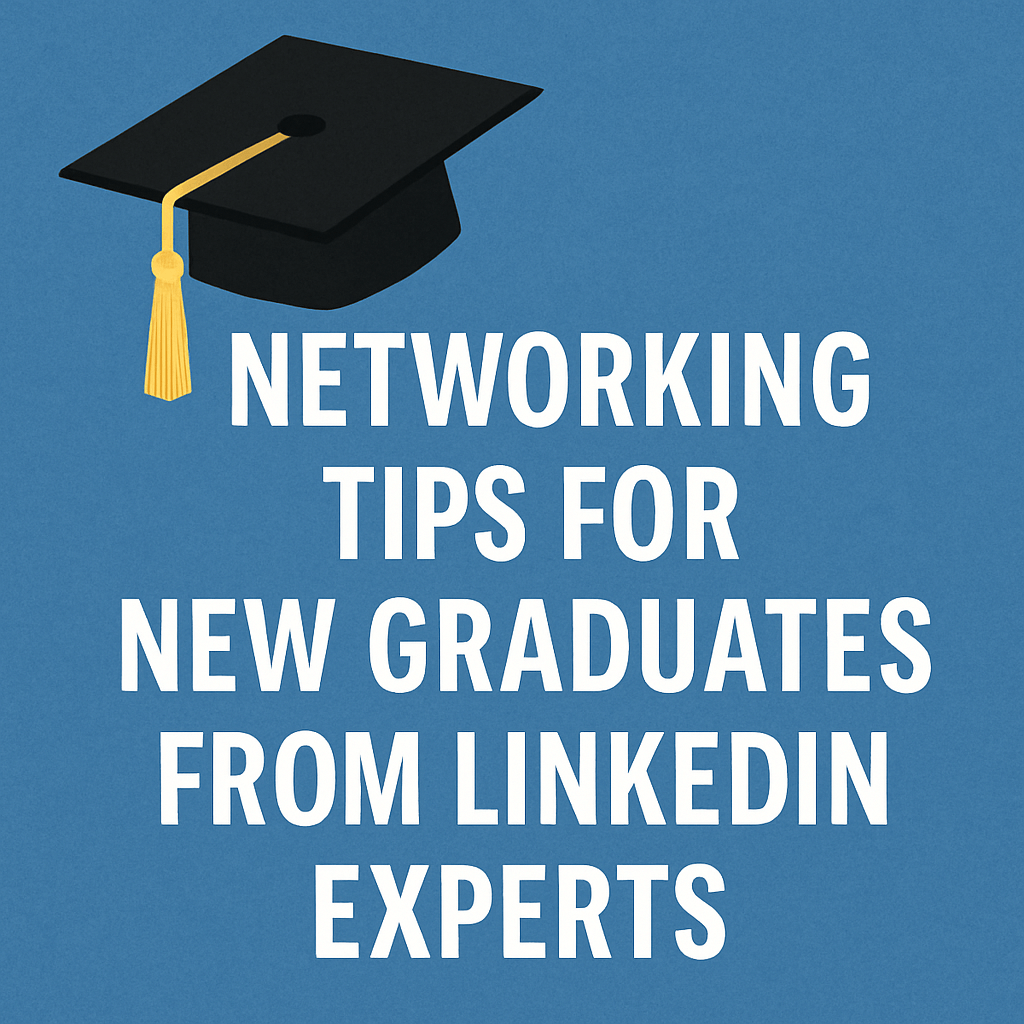Networking Tips for New Graduates from LinkedIn Experts

As the latest cohort of college graduates embarks on their professional journeys, navigating a competitive labor market can present significant challenges for those entering the workforce for the first time. With heightened competition for entry-level positions, standing out among a crowded applicant pool is essential. A recent survey conducted by Strand Partners revealed that over a third (38%) of U.S. Gen Z workers report feelings of anxiety around networking, while approximately 37% admit to avoiding it due to indecision on how to begin.
Andrew McCaskill, a career expert at LinkedIn and mentor for recent graduates, empathizes with this generation, noting, “They’ve spent crucial formative years of their professional lives in relative isolation, which has inevitably impacted their networking abilities.” This article explores McCaskill’s recommended strategies to help new graduates expand their professional networks effectively.
1. Leverage Your Existing Connections
McCaskill emphasizes starting networking efforts with individuals the graduate already knows. This could include family members, friends, professors, or even acquaintances. “Begin with those close to you first, and then branch out,” he advises. This method is advantageous because these contacts are often predisposed to assist, providing a more comfortable setting for new graduates to practice their networking skills.
- Personal Recommendations: Individuals in your existing circle can offer invaluable insights about various industries and may even connect you with professionals in your target field.
- Mentorship Opportunities: Early connections with mentors can facilitate guidance and support as recent graduates navigate career paths.
Moreover, contacts may also offer referrals, which can prove beneficial in today’s job market where word-of-mouth plays a critical role in recruitment processes.
2. Conducting Cold Outreach Effectively
Certainly, expanding beyond familiar networks is essential, and cold outreach is a validated strategy. McCaskill encourages graduates to reach out to industry professionals to explore career opportunities. However, he warns that such messages should prioritize brevity and clarity. “Busy industry professionals don’t require detailed life histories; they need to understand your aspirations and what unique value you bring to the table,” he states. This specificity can foster a productive dialogue with potential employers.
- Personalize Your Message: Tailoring messages to the recipient can increase response rates. Mention a connection point, such as a shared alma mater or sector of interest.
- Propose a Clear Call to Action: End communications with a suggestion for a coffee chat, informational interview, or simply ask if they would be open to sharing insights about their career path.
3. The Role of Flattery in Networking
While not a requisite, expressing genuine admiration for someone’s career achievements can significantly enhance networking efforts. McCaskill notes, “A bit of flattery can go a long way; it reflects a sense of interest and engagement.” This could involve commenting on a specific project the individual has successfully completed or appreciating their contribution to an industry.
Effective flattery is rooted in authenticity. Graduates should ensure compliments are sincere and demonstrate their research on the person or organization.
Additional Insights on the Importance of Networking
Networking is not merely about finding a job; it fosters professional development and career advancement in the long term. McCaskill points out that multiple studies underscore the impact of networking on job satisfaction and career progression. A survey from the Bureau of Labor Statistics indicates that over 70% of jobs are found through networking.
Furthermore, enriching one’s professional network can provide access to exclusive industry events, internships, and collaborative projects that might not be widely advertised. As industries continue to evolve rapidly, keeping connections updated can help graduates stay informed about emerging trends and opportunities.
Conclusion: Embracing Networking Integration into Career Development
For new graduates, the transition into the workforce can be daunting, but effective networking strategies can serve as powerful tools in overcoming these hurdles. By leveraging existing connections, engaging in cold outreach, and genuinely interacting with industry professionals, they can build a strong network that fosters career growth. As emerging trends indicate a continually shifting job landscape, cultivating and maintaining professional relationships becomes increasingly essential for long-term success.
As graduates navigate this crucial phase, implementing these strategies as part of a broader career development plan may lead to more fulfilling employment opportunities and professional growth.